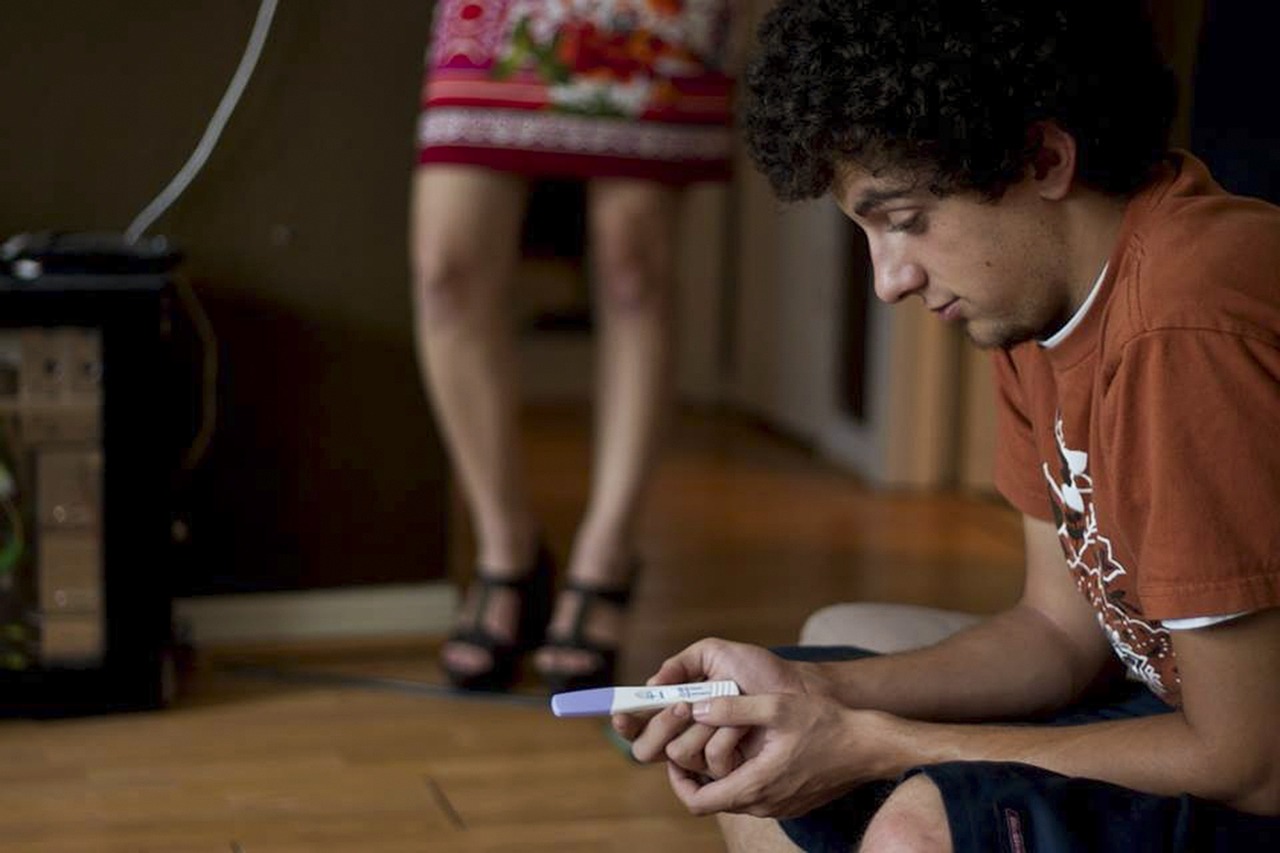Determining the right time to take a pregnancy test after intercourse is crucial for accurate results. Factors such as the type of test, ovulation timing, and implantation can affect when you should test for pregnancy.

Types of Pregnancy Tests
Different types of pregnancy tests are available for women to determine if they are pregnant. The two main types of pregnancy tests are urine tests and blood tests. Urine tests are commonly used as they are convenient and can be done at home. On the other hand, blood tests are more sensitive and can detect pregnancy earlier than urine tests. Understanding the variations between these two types of tests is essential in deciding when to take a pregnancy test for the most accurate results.
Urine pregnancy tests work by detecting the hormone hCG (human chorionic gonadotropin) in the urine, which is produced during pregnancy. These tests are usually taken at home by collecting a urine sample and using a test strip or a midstream test. Blood pregnancy tests, on the other hand, are conducted at a healthcare provider’s office. These tests measure the hCG levels in the blood and can provide more accurate results, especially in the early stages of pregnancy.
When deciding which type of pregnancy test to take, consider the sensitivity and accuracy of the test. Urine tests are convenient and cost-effective, but blood tests are more reliable, especially if you want to detect pregnancy early. Knowing the differences between these tests can help you choose the most suitable option based on your needs and circumstances.

Ovulation Timing and Conception
When it comes to , understanding your menstrual cycle is key. Ovulation typically occurs around the middle of your cycle, but this can vary from person to person. By tracking your cycle and monitoring ovulation signs like changes in cervical mucus or using ovulation predictor kits, you can pinpoint the most fertile days.
Conception, the moment when sperm fertilizes the egg, usually happens within 24 hours of ovulation. However, sperm can survive in the female reproductive tract for up to 5 days, so having intercourse in the days leading up to ovulation can also result in pregnancy. This window of fertility is crucial to consider when determining when to take a pregnancy test.
To increase your chances of accurate results, it’s important to wait until after a missed period to take a pregnancy test. This waiting period allows enough time for the fertilized egg to implant in the uterus and for the pregnancy hormone hCG to build up to detectable levels. Testing too early can lead to false negatives, causing unnecessary worry and confusion.
Considering the intricate dance between ovulation, conception, and implantation, timing your pregnancy test correctly is essential. By being patient and waiting for the right moment, you can ensure more reliable results and avoid the disappointment of a premature test. Remember, each body is unique, so understanding your own cycle and listening to its signals is key in this exciting journey towards potential parenthood.

Implantation and Pregnancy Testing
Implantation is a critical stage in pregnancy that occurs approximately 6-12 days after conception. During this process, the fertilized egg attaches itself to the uterine wall, initiating the development of the placenta. Understanding the timing of implantation is essential when considering when to take a pregnancy test for accurate results.
Implantation triggers the release of the pregnancy hormone hCG (human chorionic gonadotropin) into the bloodstream. However, it takes time for hCG levels to rise to a detectable level in urine, which is what most at-home pregnancy tests rely on for accurate results. Testing too early, before implantation has occurred, can result in a false negative.
Waiting for implantation to take place before testing can significantly increase the reliability of the pregnancy test. By allowing enough time for hCG levels to rise, you are more likely to receive an accurate result. This waiting period reduces the chances of receiving a false negative, providing you with peace of mind and accurate information about your pregnancy status.
While the anticipation to test for pregnancy can be overwhelming, patience is key when it comes to waiting for implantation. Rushing into testing too early can lead to unnecessary stress and confusion due to inaccurate results. It is advisable to wait until after implantation has occurred to ensure the most reliable outcome from your pregnancy test.

Early Testing vs. Waiting
When it comes to pregnancy testing, the age-old dilemma of early testing versus waiting is a common struggle for many women. The excitement and anxiety of wanting to know the results can often lead to the temptation to test early, but is it the right choice? Let’s delve into the pros and cons of early testing versus waiting for the opportune moment.
Testing early, before a missed period, can provide quick answers but may not always be accurate. The levels of hCG (human chorionic gonadotropin) in your body may not be high enough to be detected by the test, resulting in a false negative. This can be disheartening and lead to unnecessary stress. Patience is key when it comes to pregnancy testing.
On the other hand, waiting until after a missed period can increase the accuracy of the test results. This allows the hCG levels to rise sufficiently for detection, reducing the chances of a false negative. While waiting can be nerve-wracking, it ultimately provides more reliable results and peace of mind.
Creating a balance between early testing and waiting is essential. Understanding the ideal timing for testing based on your cycle and potential conception date can help you make an informed decision. It’s like waiting for a cake to bake – rushing it out of the oven too soon may leave you with a half-baked result.
Remember, the goal is not just to take a test, but to take it at the right time for accurate results. If in doubt, consulting a healthcare provider can offer guidance and support in navigating the uncertainties of pregnancy testing. So, resist the urge to rush and embrace the power of patience when it comes to this significant moment in your life.

Consulting a Healthcare Provider
When it comes to about pregnancy testing, it is essential to seek professional guidance and support. Healthcare providers are equipped with the knowledge and expertise to assist you in understanding the results of your pregnancy test and provide valuable insights into your reproductive health. Here are some key reasons why consulting a healthcare provider is crucial:
- Accuracy and Interpretation: Healthcare providers can help ensure the accuracy of your pregnancy test results and assist you in interpreting the outcome correctly.
- Personalized Advice: Each individual’s reproductive health is unique, and healthcare providers can offer personalized advice based on your specific circumstances.
- Emotional Support: The process of waiting for and interpreting a pregnancy test result can be emotionally challenging. Healthcare providers can provide the emotional support you need during this time.
- Medical Follow-Up: In the event of a positive pregnancy test, consulting a healthcare provider is crucial for initiating prenatal care and monitoring the progress of your pregnancy.
By consulting a healthcare provider, you can navigate the complexities of pregnancy testing with confidence and peace of mind. Whether you are trying to conceive or are faced with unexpected results, seeking professional guidance can make a significant difference in your reproductive journey.
Frequently Asked Questions
- When is the best time to take a pregnancy test after intercourse?
The ideal time to take a pregnancy test is after you have missed your period. Testing too early can result in false negatives due to low levels of the pregnancy hormone hCG.
- Can I take a pregnancy test right after intercourse?
No, it is recommended to wait at least a week after intercourse to allow enough time for the fertilized egg to implant in the uterus and for hCG levels to rise for accurate detection.
- How accurate are home pregnancy tests?
Home pregnancy tests are quite accurate when used correctly. However, factors like testing too early or improper usage can lead to false results. It’s always best to follow the instructions carefully.
- What should I do if my pregnancy test results are unclear?
If you are unsure about the results of your pregnancy test, it’s recommended to consult a healthcare provider for further guidance and possibly a confirmatory test.
- Can medications or medical conditions affect pregnancy test results?
Yes, certain medications and medical conditions can interfere with pregnancy test results. It’s important to inform your healthcare provider about any medications or health issues you have before taking a test.